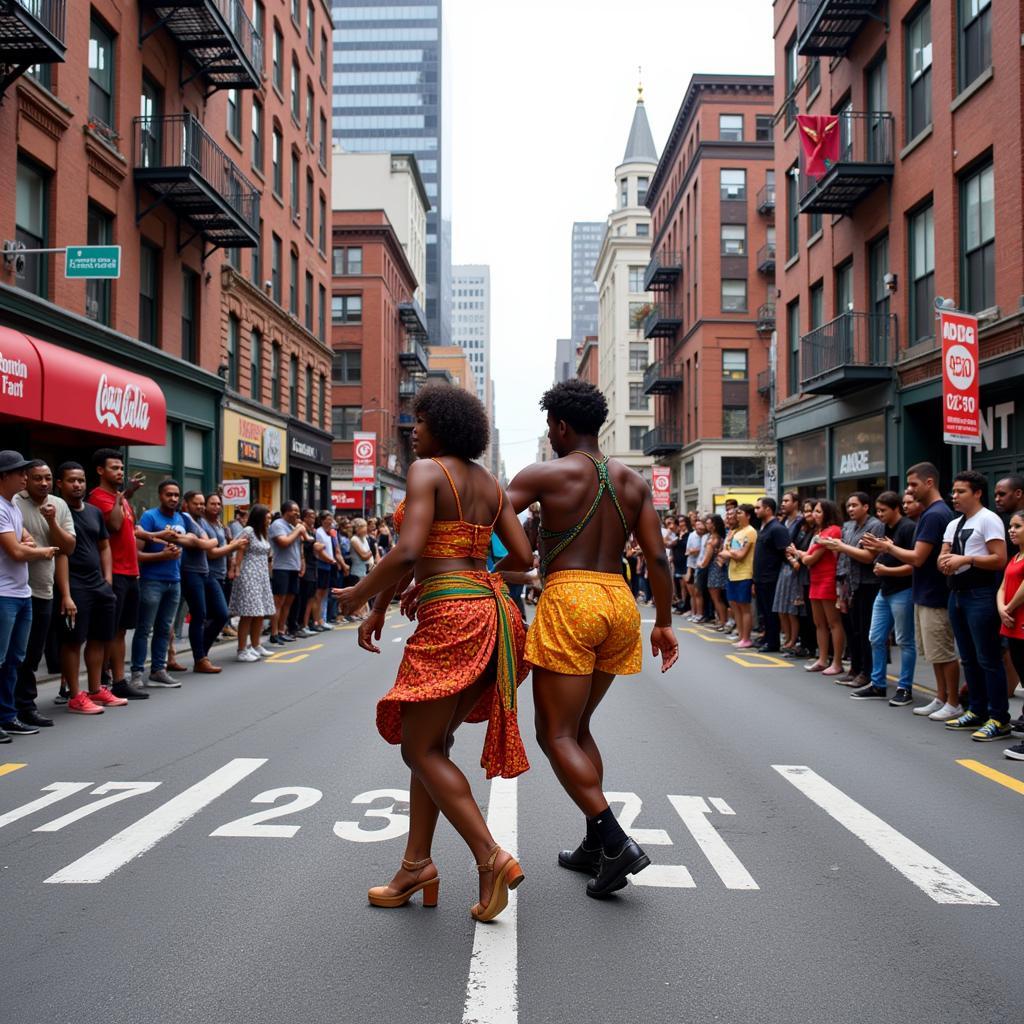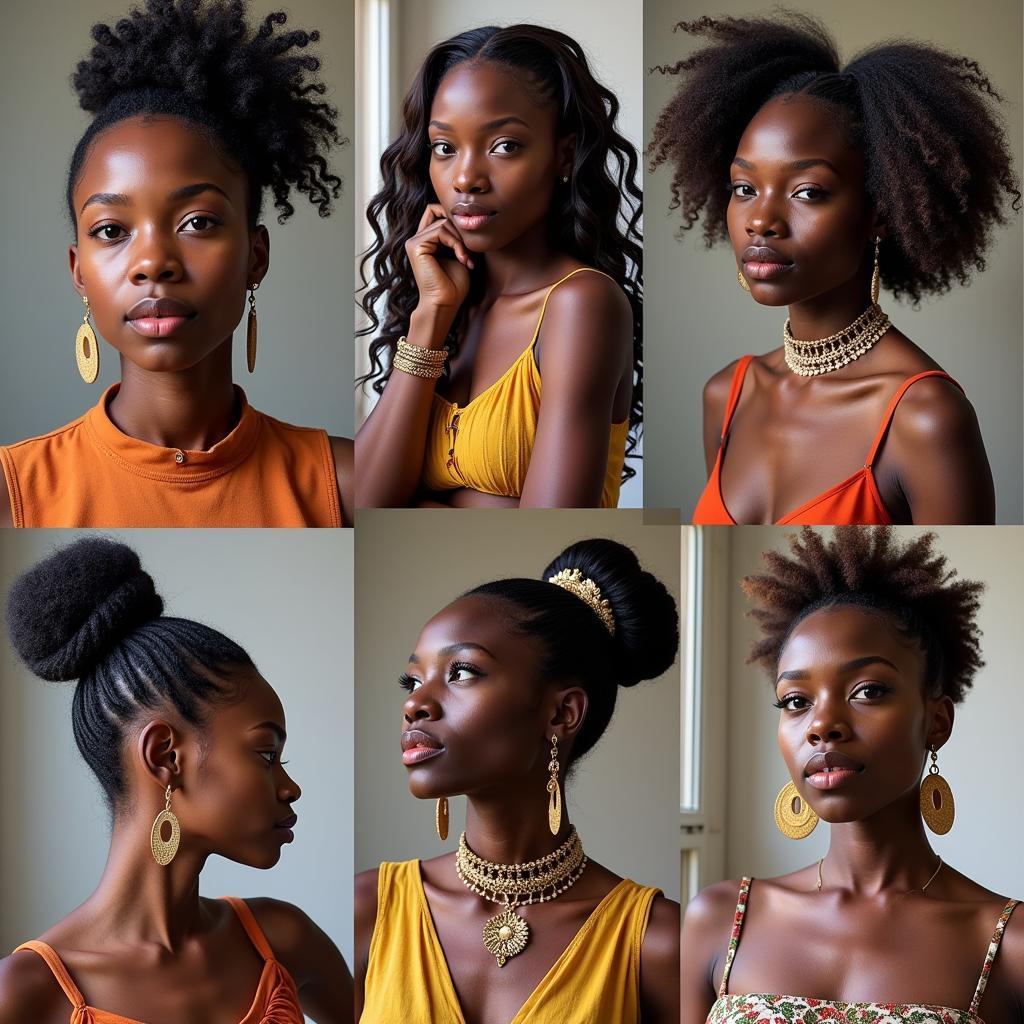Essential African American Hair Care Tips for Healthy and Vibrant Locks
African American hair is unique and beautiful, characterized by its tight curls, coils, or kinks. This hair type requires specific care to thrive, and understanding its needs is key to achieving healthy, vibrant locks. Whether you’re rocking a TWA (teeny weeny afro), braids, locs, or a relaxer, these African American Hair Care Tips will help you establish a routine that nourishes your hair from the inside out.
Understanding Your Hair Type and Its Needs
The key to effective African American hair care lies in understanding your specific hair type and its unique characteristics. Hair types are generally classified using the Andre Walker hair typing system, which ranges from Type 1 (straight) to Type 4 (coily).
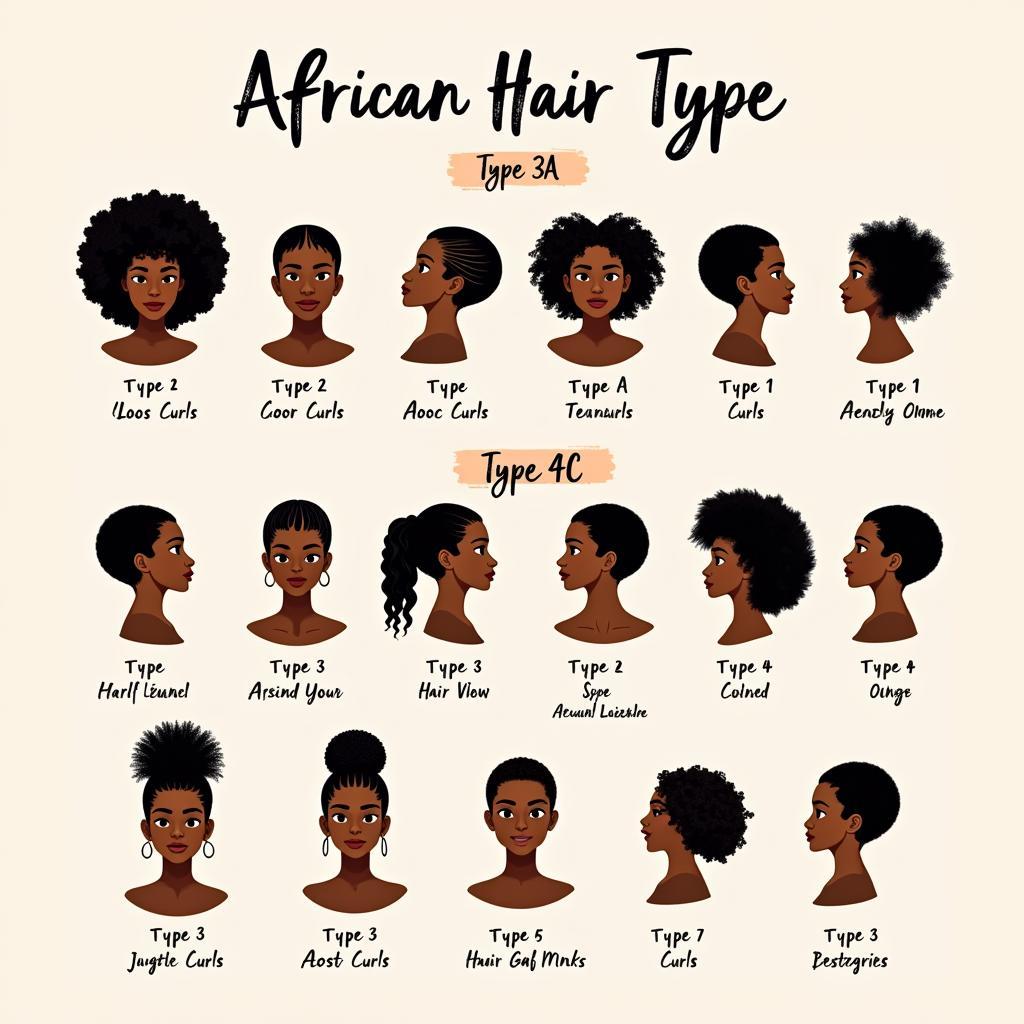 African American Hair Types Chart
African American Hair Types Chart
African American hair typically falls under Type 4, which is further divided into subtypes:
- Type 4A: Defined, springy S-shaped curls with a noticeable curl pattern.
- Type 4B: Z-shaped coils that are tighter and less defined than Type 4A.
- Type 4C: Tightly coiled strands with a zig-zag pattern that may lack a defined curl pattern.
Each hair type requires specific care, and what works for one may not work for another. For example, Type 4A hair may benefit from moisturizing products, while Type 4C hair might need heavier butters and oils to stay hydrated.
Moisturize, Moisturize, Moisturize: The Golden Rule
One of the most crucial African American hair care tips is to prioritize moisture. Due to the structure of the hair follicle, sebum (natural oil) has a harder time traveling down the hair shaft, leading to dryness. Regular moisturizing combats this issue and keeps your hair soft, manageable, and less prone to breakage.
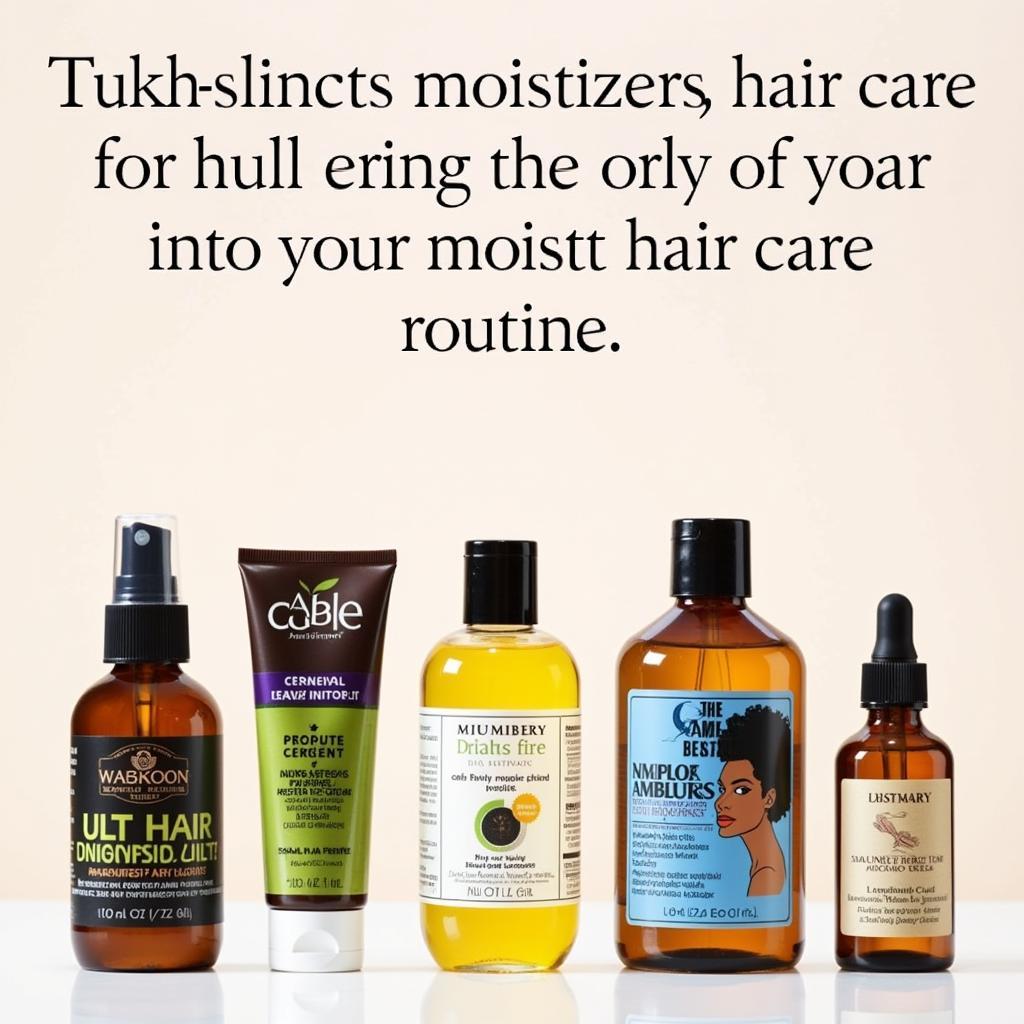 African American Hair Moisturizing Products
African American Hair Moisturizing Products
- Deep Condition Regularly: Incorporate deep conditioning treatments into your routine at least once or twice a month.
- Use a Leave-in Conditioner: Lock in moisture after washing and conditioning with a leave-in conditioner or hair milk.
- Oil Your Scalp and Hair: Natural oils like jojoba oil, coconut oil, and castor oil can deeply moisturize the scalp and hair shaft.
Gentle Detangling: Preventing Breakage and Damage
Detangling African American hair requires a gentle touch to prevent breakage and damage. Always detangle hair when it’s wet and slippery, preferably after applying a conditioner.
- Use a Wide-Tooth Comb: Avoid using fine-tooth combs, as they can snag on curls and cause breakage. Opt for a wide-tooth comb or a detangling brush specifically designed for curly hair.
- Start from the Ends: Begin detangling from the ends of your hair and work your way up to the roots, gently removing any knots or tangles.
- Section Your Hair: Divide your hair into smaller sections to make detangling more manageable and prevent unnecessary pulling.
Protective Styling: Giving Your Hair a Break
Protective styles are a great way to protect your hair from damage, promote growth, and minimize manipulation. These styles, such as braids, twists, locs, and wigs, shield your hair from environmental stressors and minimize breakage.
- Choose the Right Style: Select a protective style that suits your hair type, length, and lifestyle.
- Don’t Keep Styles in for Too Long: Avoid keeping protective styles in for extended periods, as this can lead to matting, dryness, and breakage.
- Moisturize Your Scalp: While your hair is in a protective style, continue to moisturize your scalp regularly to prevent dryness and itching.
Seeking Professional Guidance: Finding the Right Stylist
Finding a skilled and experienced hairstylist who specializes in African American hair is essential. A knowledgeable stylist can provide personalized advice, recommend suitable products, and execute styles that complement your hair type and needs.
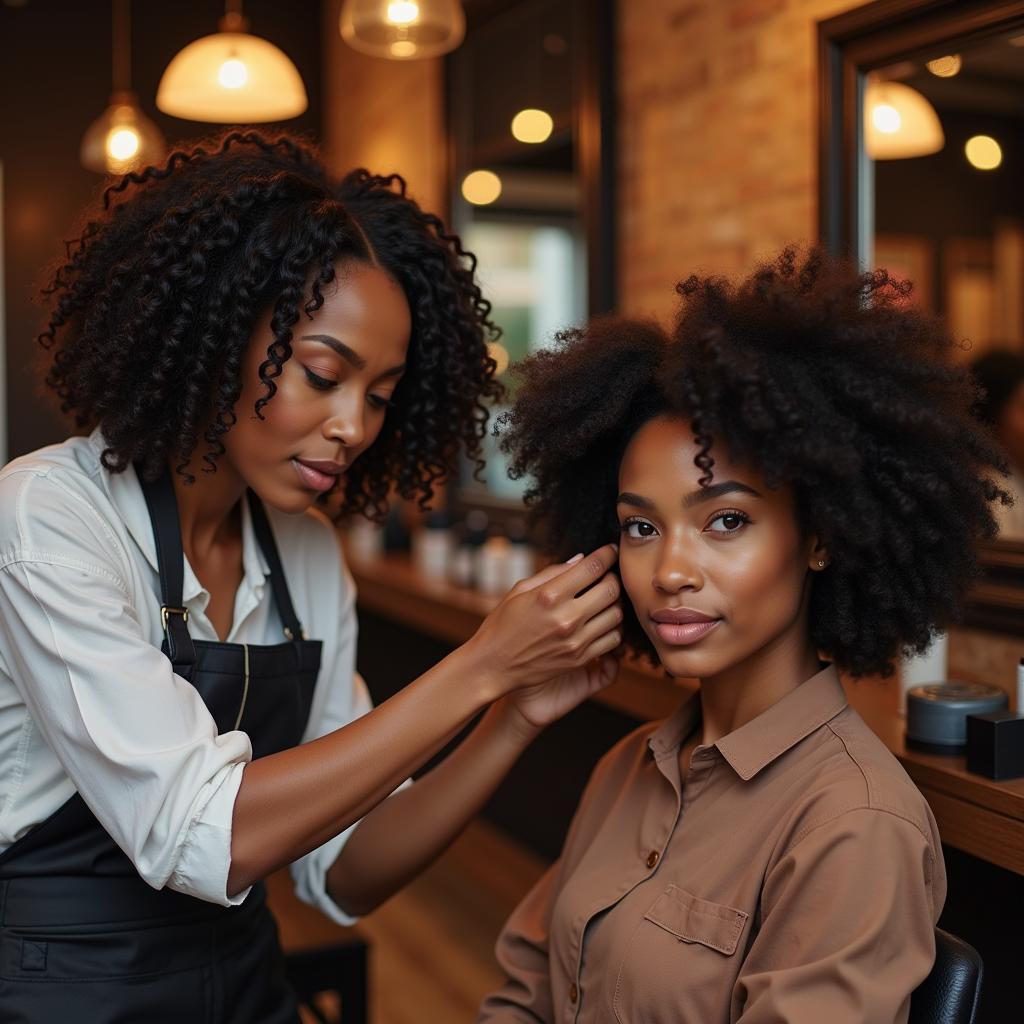 African American Hair Salon Visit
African American Hair Salon Visit
- Ask for Recommendations: Seek recommendations from friends, family, or online communities for stylists who specialize in African American hair.
- Check Online Reviews: Before booking an appointment, read online reviews to gauge the stylist’s expertise and customer satisfaction.
- Communicate Your Needs Clearly: During your consultation, clearly communicate your hair care goals, concerns, and preferences.
Conclusion: Embrace Your Natural Beauty
Taking care of your African American hair is an act of self-love and empowerment. By understanding your hair type, adopting a consistent hair care routine, and seeking professional guidance, you can embrace the natural beauty of your hair and achieve healthy, vibrant locks that make you feel confident and radiant. For more tailored tips, explore resources like African American hair color and African American headband wigs.
